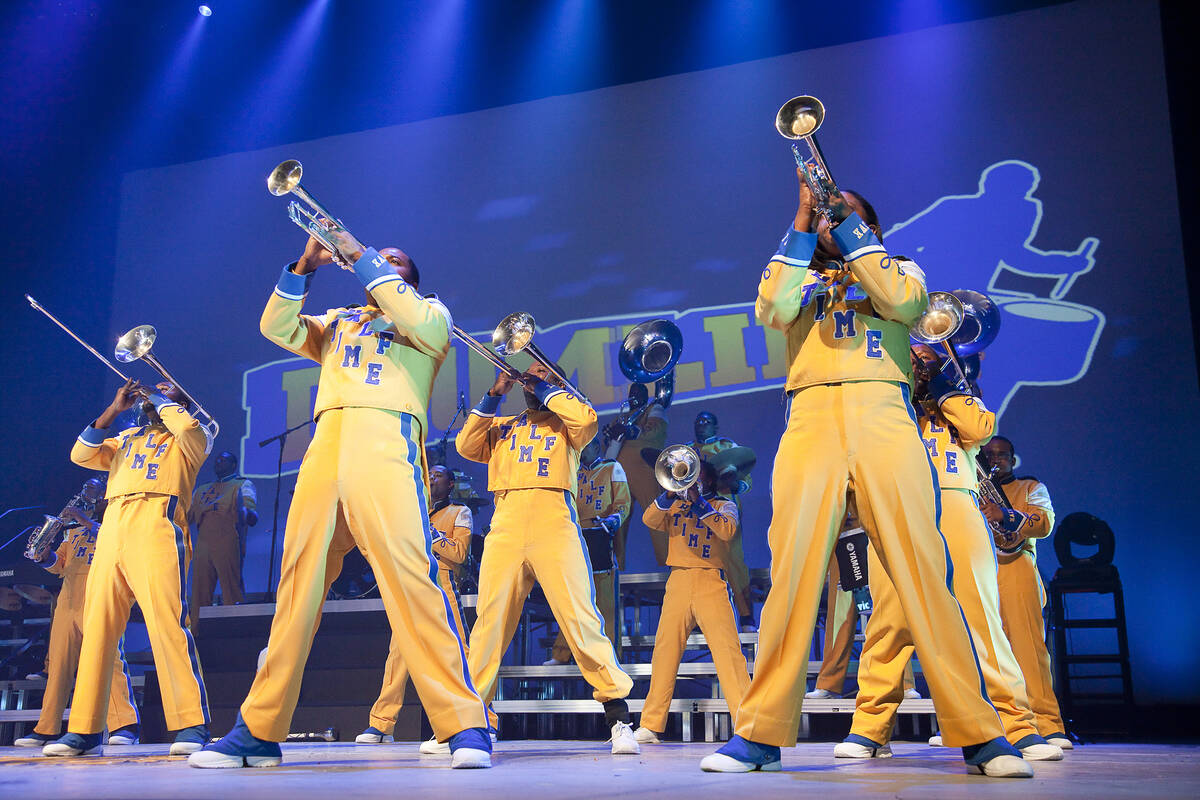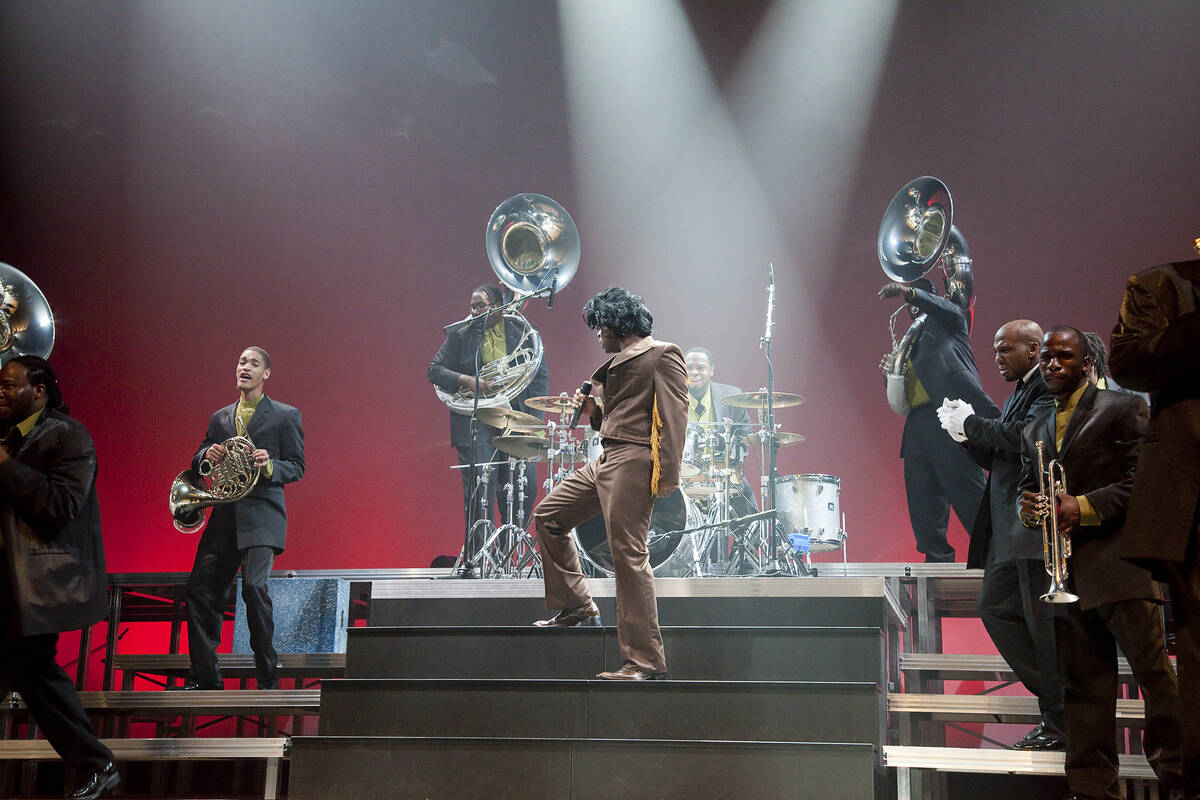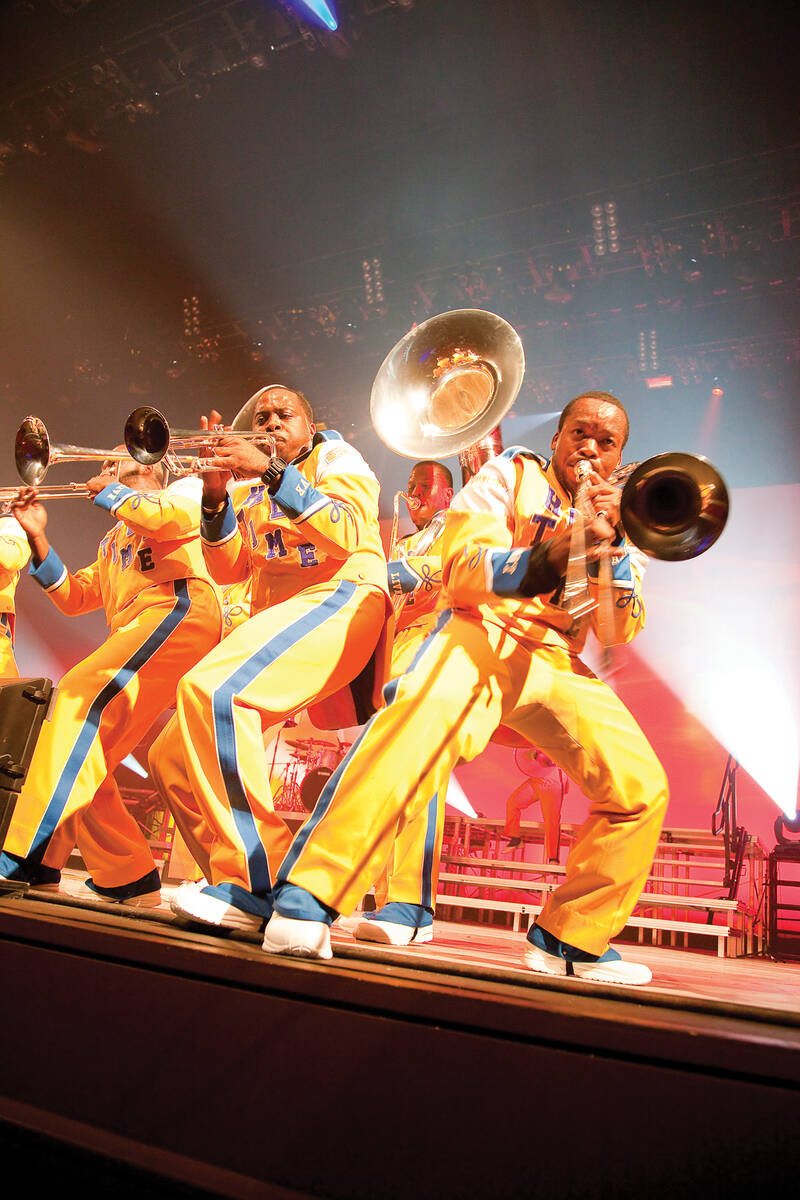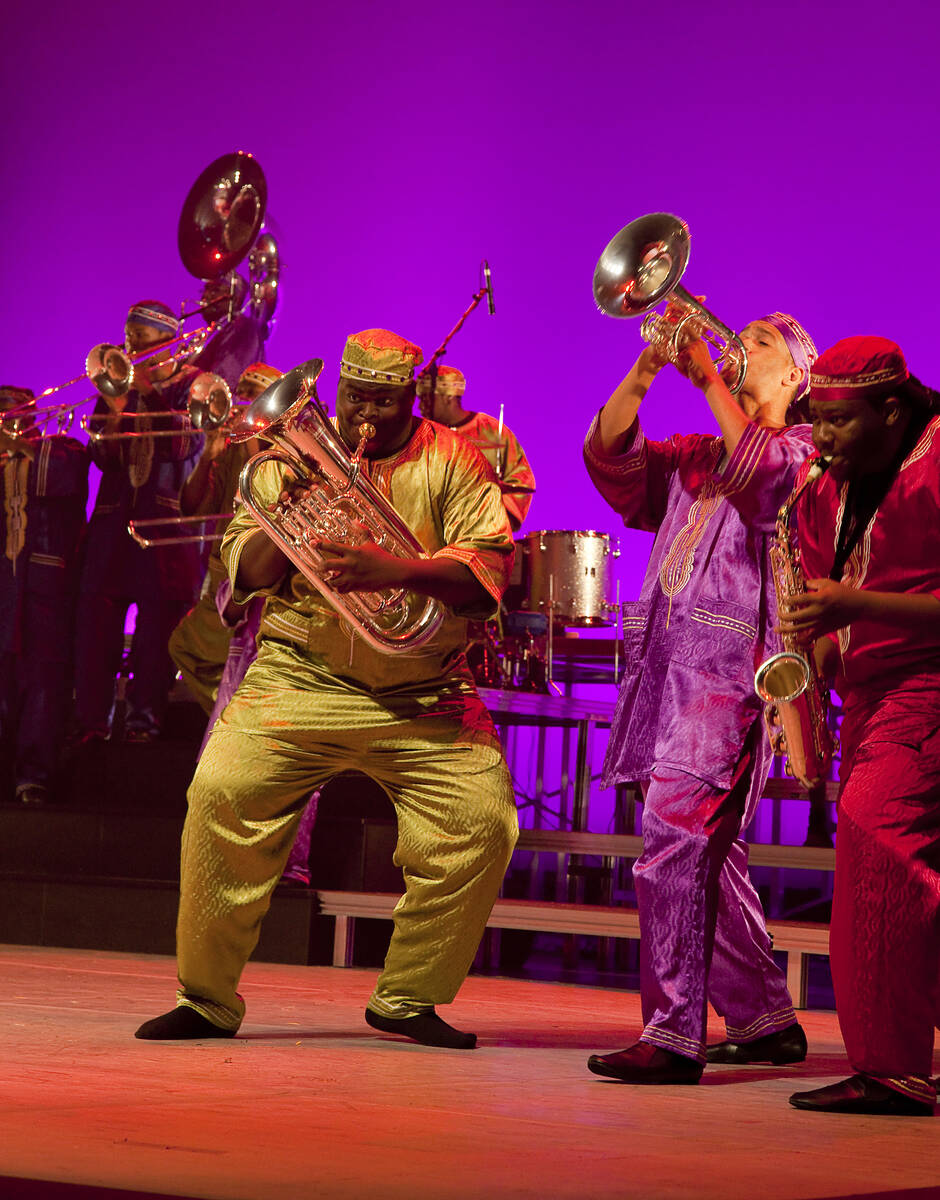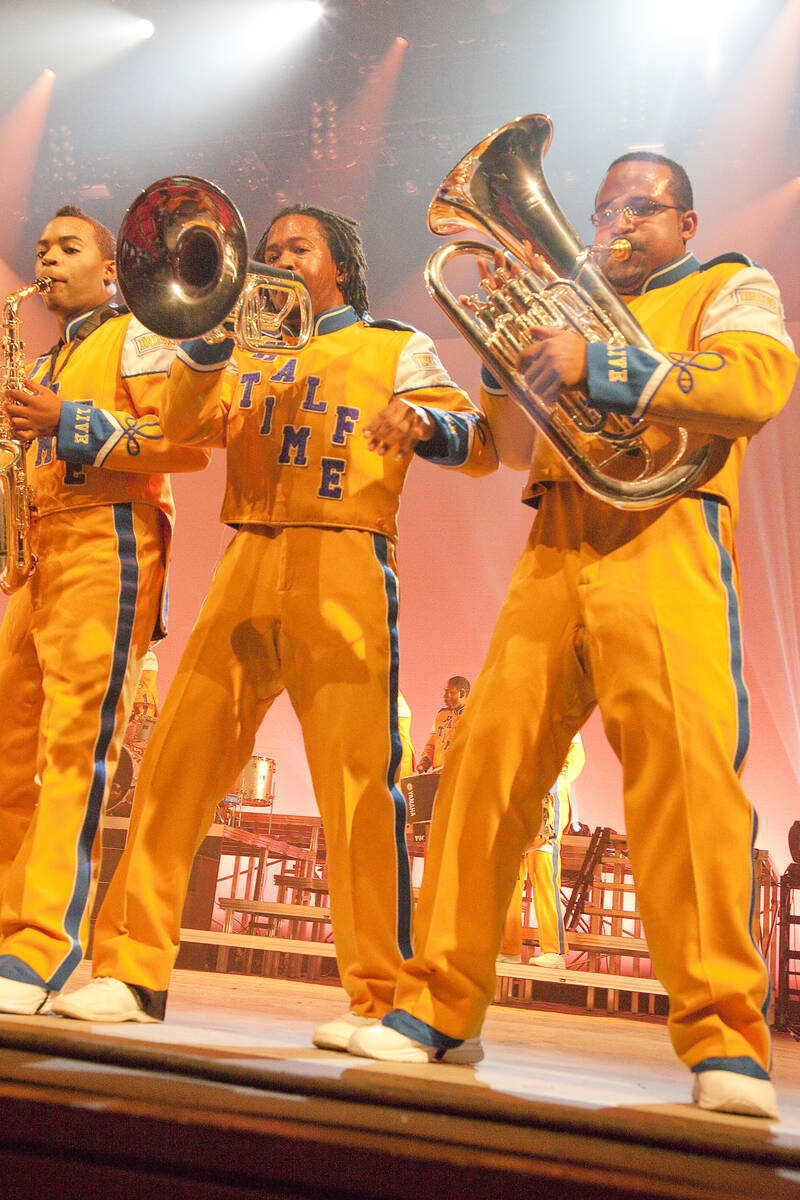‘Anything can happen’: Celebration of marching band culture hits stage
If he was just a little bigger as a kid, he might not be on the end of the phone right now.
Don Roberts loved playing football as a boy in his native Atlanta. But he was a tad small for such a full-contact sport.
“My mom got tired of me taking those licks,” Roberts recalls with a chuckle, decades later. “So, I moved over to the band.”
In seventh grade, Roberts started playing the trumpet. During his freshman year of high school, he’d be mentored by a band director who hailed from Florida A&M, a member of the historically Black colleges and universities (HBCU) system.
“I wanted to talk like him, be like him, everything about it,” Roberts says. “He had such an impact on me.”
So much so that Roberts would also enroll at Florida A&M and join its renowned marching band.
Now, marching bands at HBCU schools are a culture in and of themselves — an incredibly vibrant, colorful and competitive one. Known for their high-energy, high-stepping halftime performances at football games, these musicians don’t just play their instruments, they do so with swagger and showmanship, incorporating elaborate dance moves and highly involved choreography in their pulse-goosing routines.
You come for the band as much as the game — though the two have become pretty much synonymous with each other.
Just two weeks ago, Usher had Jackson State University’s marching band, the Sonic Boom of the South, play as part of his Super Bowl halftime show performance.
That R&B superstar aside, few people have helped bring HBCU marching band culture to the masses like Roberts has.
He was instrumental — pun intended — in the making of the 2002 hit film “Drumline,” which gave the HBCU band lifestyle its greatest mainstream exposure up to that point. As the film’s executive band consultant, Roberts trained the actors, created the band’s drills and more. He served in the same capacity for the 2014 sequel, “Drumline: A New Beat,” and for the ESPNU TV series “The Battle,” which chronicled HBCU band life.
In 2008, Roberts created “Drumline Live,” a touring production that has packed houses from the U.S. to Japan and Korea ever since. The show visits The Smith Center on Tuesday.
“People used to ask me, ‘What do you want this movie to say to America?’ ” Roberts recalls. “I say, ‘My first goal is to make the HBCU band members and pioneers proud.’ And if we do that, America is gonna be pleased, because that’s the hardest audience to please.
“That’s what happened,” he continues. “And that’s how ‘Drumline Live’ was born.”
Marching to box office millions
“I always tell people, I didn’t find Hollywood — Hollywood found me.”
Roberts is talking about how he came to be a part of “Drumline.”
In the early 2000s, he was serving as co-director for bands at Southwest DeKalb High School in Decatur, Georgia, overseeing a decorated, 300-piece band with a distinguished history, having performed in the Macy’s Thanksgiving Day parade, the Rose Bowl parade, at the Olympics and more.
One day he got word that superstar producer/songwriter Dallas Austin, who’s collaborated with such big names as TLC, Madonna, Boyz II Men, Gwen Stefani, Pink and many more, wanted to drop by band rehearsal.
“I had no idea why he wants to come to rehearsals, but hey, bring him on,” Roberts recalls thinking. “He showed up, didn’t even introduce himself, just watched. And then at the end of rehearsal, he said, ‘I’m working on this movie. I’ve been watching you. I love your band, and I would love you to work with us on this upcoming movie.’ I was like, ‘Wow.’ ”
With Austin serving as a producer of “Drumline,” Roberts was recruited to bring a measure of authenticity to the film. He became so involved in the production that Roberts inspired a character in the film: band director Dr. Lee, portrayed by actor/comedian Orlando Jones.
“His office was actually designed as my office — that’s how deep it goes,” Roberts says. “They took pictures and everything.”
Released in December 2002, “Drumline,” which stars Nick Cannon as a New York City drummer who attends a fictional HBCU college and immerses himself in the rigors of the school’s marching band, grossed over $55 million.
Just as big as the film’s box-office impact was its influence on spreading HBCU culture.
Curtis Oluwani, a trumpeter, drum major and recent graduate from HBCU school Tennessee State University, says that he watched the film over 100 times as a kid.
“Being introduced to that at such an early age, it showed me, ‘Oh, wow, this is finally accepted,’ ” says Oluwani, a three-time Grammy winner who’s also a “Drumline Live” cast member. “The marching band, the HBCU culture is finally getting that recognition. We were being so overlooked.
“If you know anybody that went to an HBCU, we all go see the marching band,” he continues. “It’s just a cultural thing. And when that movie came out, it created that culture for us, and gave us that kind of leeway to be expressive and creative. That movie definitely played a big part in a lot of people’s lives, a lot of musicians’ lives.”
The same can be said for “Drumline Live.” And to think, it was almost over as soon as it began.
The show that almost wasn’t
The first iteration of “Drumline Live” lasted all of three shows.
“We did three cities and we shut it down right there,” Roberts says. “We just didn’t know how to market the show, because when you say, ‘Drumline Live,’ people didn’t know what it was.”
Enter the Columbia Artists Management talent agency, which subsequently reached out to Roberts and his team about getting “Drumline Live” back on track.
“They said, ‘Leave the marketing to us,’ ” Roberts recalls, “ ‘You guys work on the show. We’ll get it out to the world.’ ”
That they did — and it’s been a hit ever since.
The production has evolved over the years, now encompassing an average of 30 cast members in a two-hour show that demands much of its performers.
“We train our bodies, we train our minds, we train our spirits, of course we train musically — it’s a lot of training that goes into putting this together,” Oluwani says.
“We have to think on the same level, and we all have to think at the same pace at the same time,” he continues. “You have to be so strong-minded when it comes to performing the music, how to articulate the music, how to execute the dance moves properly, how to put on the show.”
The production covers decades of music, from ’30s swing to present-day R&B and hip-hop, with classic soul acts such as James Brown, the Temptations and Aretha Franklin sampled along the way.
“It’s something for everybody,” Roberts contends. “We got something for Granddad, we got something for Great-granddad, something for Mom, something for Dad, something for the kids. From 5 to 95, we’ve got something for you.”
And they want a little something from audiences in return: participation.
“You’re not just gonna sit there and watch us like we’re in the movie theater or something,” Oluwani says. “You’re going to dance. You might come on stage. Anything can happen.”
Contact Jason Bracelin at jbracelin@reviewjournal.com or 702-383-0476. Follow @jbracelin76 on Instagram.
Preview
Who: "Drumline Live"
When: 7:30 p.m. Tuesday
Where: The Smith Center, 361 Symphony Park Ave.
Tickets: $35-$85; thesmithcenter.com



